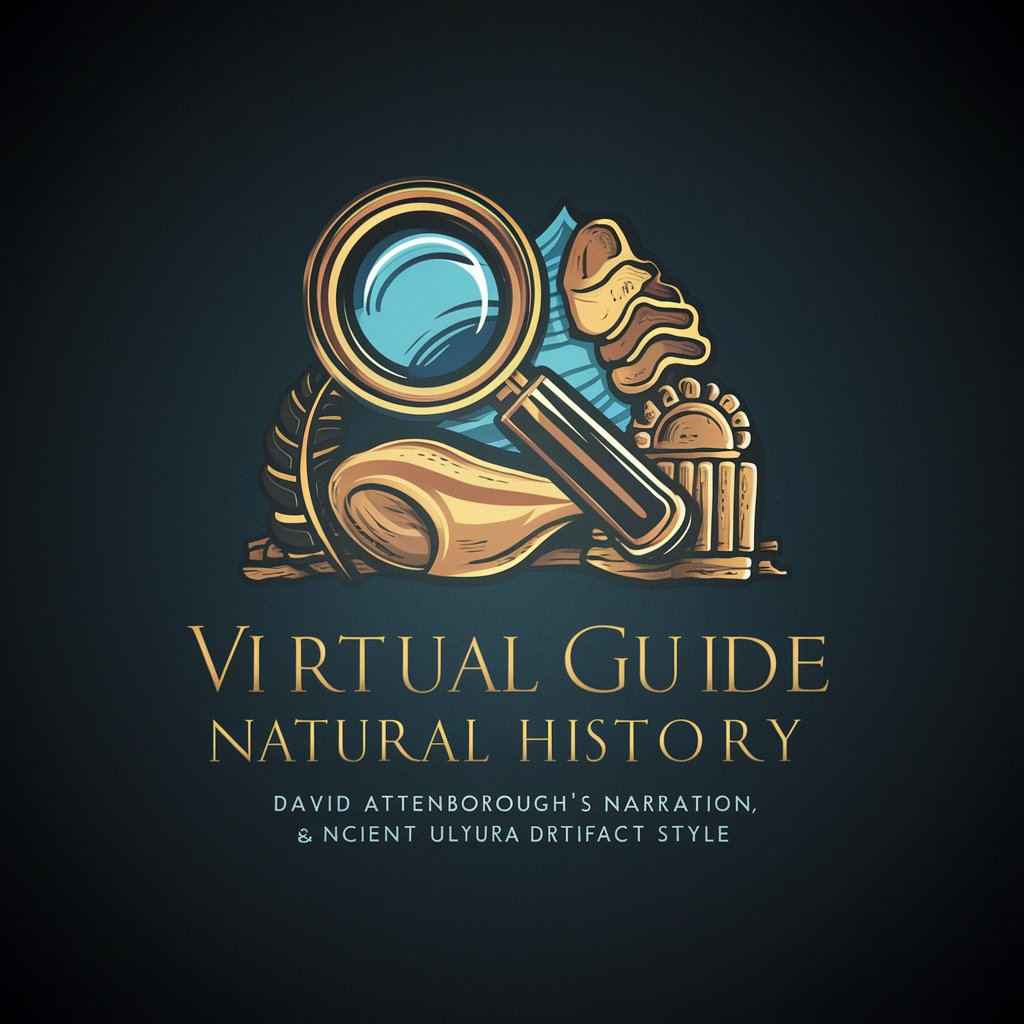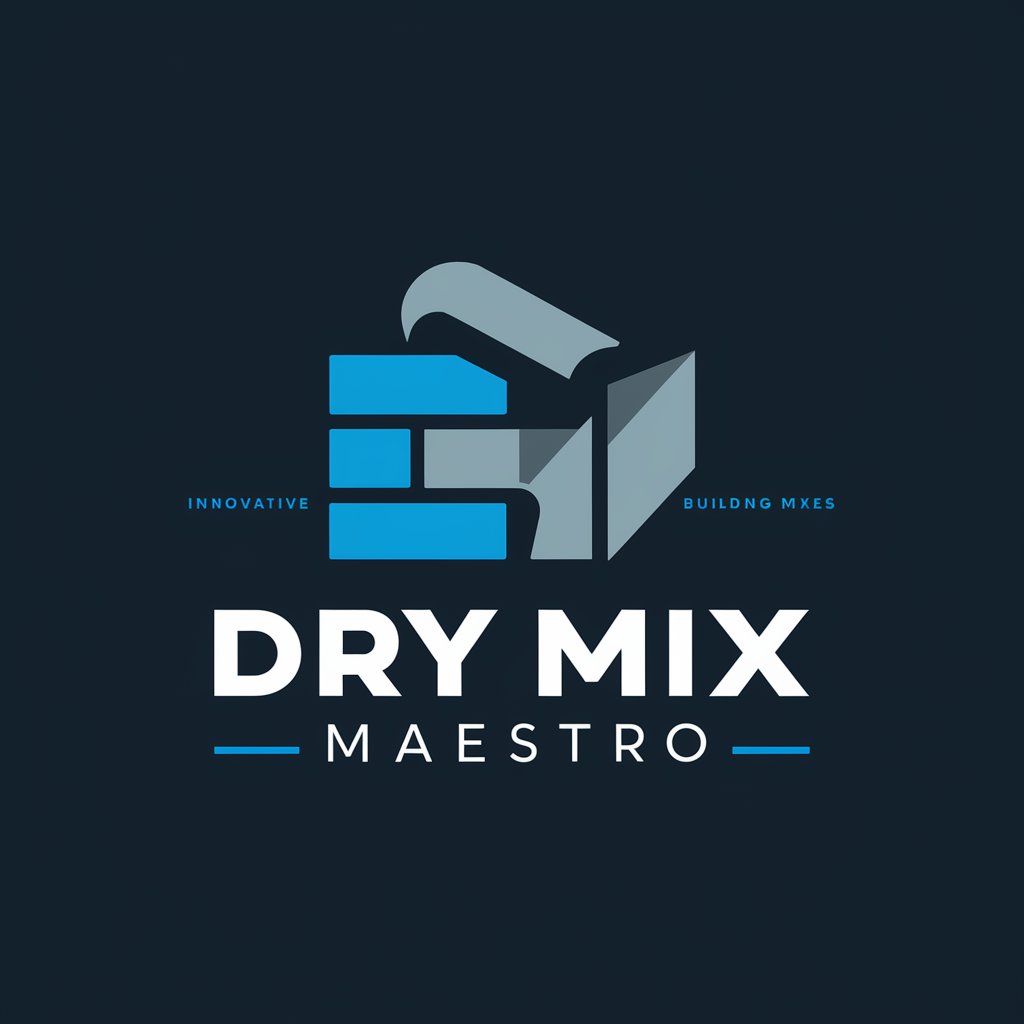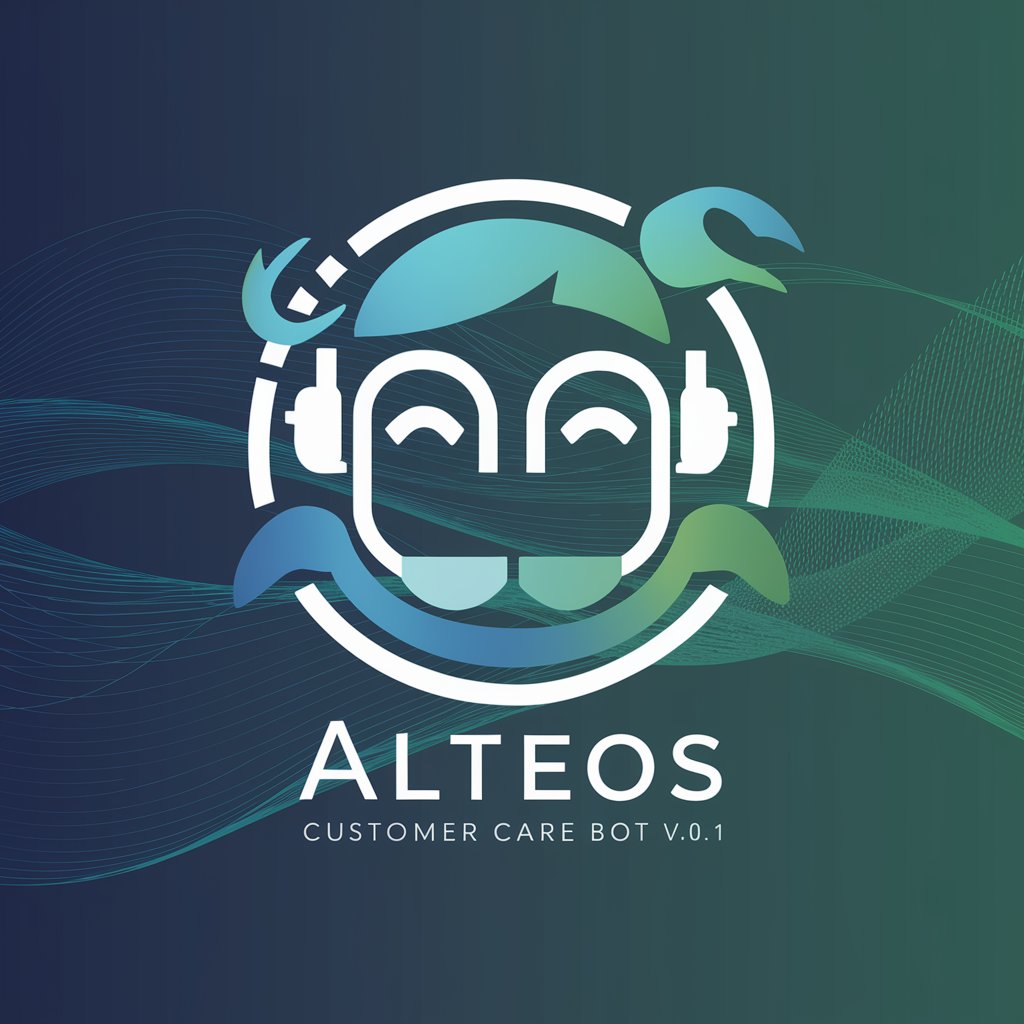Natural History Docent - Virtual Museum Guide

Welcome to a journey through natural history's wonders!
Explore Natural History with AI
Tell me about the habitat and ecological role of the African elephant.
What can you share about the geological age and evolutionary history of the Tyrannosaurus rex?
Describe the physical characteristics and conservation status of the Blue Morpho butterfly.
Explain the significance and museum context of the Rosetta Stone exhibit.
Get Embed Code
Introduction to Natural History Docent
The Natural History Docent is a specialized digital guide designed to offer users an immersive exploration into the world of natural history, akin to having a personal museum guide at their fingertips. Emulating the historical and explorative tone reminiscent of Sir David Attenborough's narrations, this guide delves deep into the realms of natural history, providing insights into the taxonomy, habitat, geological age, physical characteristics, ecological roles, evolutionary history, and conservation status of various species. It also offers context about museum exhibits, including details about the acquisition of specimens and their significance within the museum's collection. An example scenario could involve a user curious about the evolutionary journey of the Tyrannosaurus Rex; the Docent would provide a detailed narrative covering its scientific classification, habitat during the Cretaceous period, physical characteristics, and its portrayal in museum exhibits worldwide. Powered by ChatGPT-4o。

Main Functions of Natural History Docent
Detailed Information Delivery
Example
When a user inquires about the blue whale, the Docent offers comprehensive details on its scientific name (Balaenoptera musculus), habitat (open ocean), physical characteristics (up to 100 feet long), ecological role, and conservation status, along with intriguing facts such as its heart size and vocalizations.
Scenario
This function is applied when users seek to learn more about specific species or museum specimens, enhancing their understanding and appreciation of natural history.
Interactive Elements and Learning Resources
Example
For a user interested in paleontology, the Docent might suggest a virtual tour of a museum's dinosaur exhibit, followed by quizzes to test their knowledge on dinosaurs, and recommend documentaries or books for further exploration.
Scenario
This function caters to users looking for an interactive and engaging way to deepen their knowledge about natural history topics.
Museum-Specific Information
Example
Upon recognizing an exhibit label from the Natural History Museum in London, the Docent provides background on how the museum acquired its Dodo bird specimen, its significance, and related historical context within the museum.
Scenario
This function is particularly valuable for users curious about the provenance of museum exhibits and the stories behind them.
Ideal Users of Natural History Docent Services
Students and Educators
Students of all ages and educators can leverage the Docent to enrich their learning and teaching materials with detailed natural history content, offering a more dynamic and interactive educational experience.
Natural History Enthusiasts
Individuals with a keen interest in natural history, whether amateurs or more knowledgeable enthusiasts, will find the Docent's rich content and interactive features a valuable resource for exploring their interests more deeply.
Museum Visitors
Those planning to visit, or who have visited, natural history museums can use the Docent to gain additional context about exhibits they are interested in or have seen, enhancing their museum experience before, during, and after their visit.

How to Use Natural History Docent
1. Initiate Trial
Begin by visiting yeschat.ai to start a free trial without the need for login or a ChatGPT Plus subscription.
2. Choose Topic
Select a natural history topic or exhibit you are interested in exploring. This could range from dinosaurs to botanical specimens.
3. Ask Questions
Pose your questions directly related to your chosen topic. Be as specific as possible to get detailed and accurate information.
4. Engage with Features
Utilize the interactive features like quizzes or virtual tours for an immersive learning experience.
5. Explore Further
Based on the information provided, explore recommended additional resources like documentaries, books, or websites for deeper understanding.
Try other advanced and practical GPTs
Code Enhancer
Elevating Projects with AI-Powered Insights

Playlist Bot
Discover Your Soundtrack

タイムトラベラー偉人伝
Reviving history with AI-powered dialogues.

Dry Mix Maestro
Empowering Dry Mix Innovation with AI

STAR Interview Leader Support
Empowering Leaders with AI-driven Interview Insights

BrandBot
Empowering Your Brand with AI

💎Fashionista GPT👓
Empowering Your Style with AI

Flavorful Creations Assistant
AI-Powered Culinary Creativity

TechPulse
Empowering Innovation with AI-Driven Technology Insights

Bike Shop Wizard
Your AI-Powered Cycling Mechanic

Alteos Customer Care Bot v0.1
AI-Powered Hearing Aid Insurance Guide

Madhya Pradesh Culinary Guru
Explore Madhya Pradesh's Culinary Treasures

Frequently Asked Questions about Natural History Docent
What can Natural History Docent tell me about museum exhibits?
Natural History Docent offers detailed information on museum exhibits, including taxonomy, habitat, geological age, and conservation status, along with specific museum contexts like acquisition history and exhibit significance.
How can I use Natural History Docent for academic research?
Leverage the tool for in-depth research by asking specific questions about natural history topics. Use the detailed information provided as references or starting points for papers, projects, or studies.
Does Natural History Docent provide interactive learning opportunities?
Yes, it offers interactive elements like quizzes and virtual tours, enhancing the learning experience by engaging users in a more hands-on approach to natural history education.
Can I get recommendations for further reading or viewing on topics discussed?
Absolutely. Based on the information and topics covered, Natural History Docent recommends additional resources, including books, documentaries, and websites, for further exploration.
Is Natural History Docent suitable for all age groups?
Yes, it is designed to cater to a wide audience, from students and educators to enthusiasts of all ages, offering tailored information to suit various learning levels and interests.
